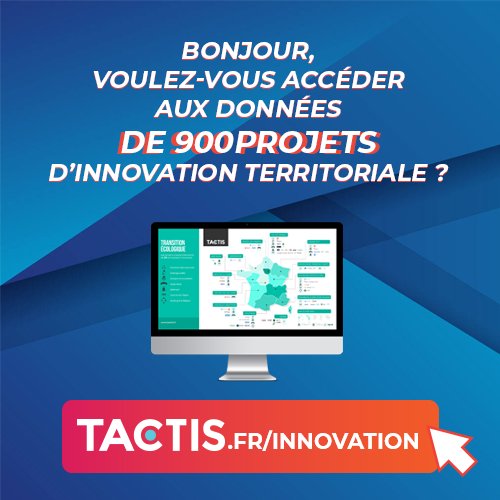Tactis accompanies you in the evaluation of the potential externalities of your project in a territory.
We believe that the basis for the development of Smart City projects should be based, as far as possible, on socio-economic assessment methods for the externalities generated for the territory.
Indeed, the lack of feedback on smart city initiatives poses a problem for local authorities to make investments in this area. In a context of scarce public money, it is necessary to have an overview of the potential benefits, both direct and indirect.
Socio-economic assessment makes it possible to verify whether a project generates more value for the territory than the public cost borne by the community. Thus, projects with high socio-economic returns should be prioritized.
The objective is not to carry out an accounting assessment that relates budgetary costs to investment, but also to integrate the impacts (positive and negative) and spillover effects on the local economy.
Socio-economic assessment thus makes it possible to quantify the costs and benefits of a smart city project and provides essential information for public decision-makers, particularly when applying for European funds.
| We evaluate projects according to three main indicators:
- The financial net present value (financial NPV) that reports costs and benefits to the community. - The socio-economic net present value (NPV SE) which reports the costs and benefits to the community while taking into account externalities for all stakeholders affected by the project. - The Collective Value created by Euro public Investigation (VCPEI). This indicator makes it possible to quickly assess the economic opportunity of a Smart project for the community, this value allowing to express the leverage effect of each euro invested for the territory. |
This evaluation is also intended to highlight the analysis of the existing situation, in particular on the following points:
- Which technical systems deployed, level of maturity and degree of innovation?
- Which economic models and profitability prospects? What are the roles to be shared between public and private?
- What measures are used to maximize the involvement of end users and the public?
- To what extent can these projects be adapted in the context of the territory?
- What gains could be made in terms of socio-economic benefits for the territory and its inhabitants?
Tactis develops the economic and financial model for your project.
On the basis of these socio-economic analyses, we assist our clients in carrying out "advantages/disadvantages" assessments of management methods.
The main financial balances are structured around four fundamental modules that make it possible to give three "visions" of the project's economic balance:
- Definition of forward-looking assumptions, making it possible to group together the figures carried out as part of the financial evaluation;
- Project financing plan, making it possible to determine the amounts and payment schedule of funds to be paid by the various co-financiers of the project as well as the borrowing requirement ("cash" vision);
- Business plan, making it possible to determine the conditions for achieving economic balance regardless of the method of contracting ("private finance" vision);
- Budgetary foresight, allowing to have a translation into public accounting of the different financial flows related to the project, so that the partner Communities (Region, Department, EPCI, Municipalities) can anticipate the consequences of the implementation of the project on their investment and operating sections ( "public finance" vision).
Tactis is a force of proposal to define the most appropriate legal arrangement taking into account the economic model of the project.
The study of management methods is then carried out on the basis of a transversal analysis including the technical, legal and financial elements and making it possible to identify the advantages and disadvantages of each of the management methods for a wide variety of types of arrangements, such as for example:
- Concession of services;
- Global public procurement;
- Performance markets ;
- Local public company;
- Partnership market.
- Governance with or without legal personality and/or financial autonomy;
- Single-operation SEM (SEMOP);
- Public Innovation Market;
Each arrangement is examined on the basis of several criteria and the suitability of the innovation in question (mobility, third places, inclusion, citizen participation, etc.): duration of procedures and contracts, tax impact of each contractual arrangement (in particular VAT), control of the service provider by the project's stakeholders, scalability, reversibility, etc.
Support you in the contract award procedures
We have a good knowledge of the implementation of procedures for the award of public-private projects, and are able to support you in detail at each stage of these processes:
- Drafting of a business consultation document:
- Analysis of applications, offers and selection of candidates based on an analysis of all the characteristics of the file submitted.
- Management of auditions / negotiations with candidates.
- The detailed finalization of the contract between the public entity and the prospective candidate, until the final contract is obtained.
Support you in monitoring the life of the contract
Tactis leads you in the operational implementation of the contract:
- Definition, development and monitoring of performance indicators.
- Participation in contract monitoring and implementation committees
- Proposal and drafting of contract amendments.
- Real assessment of socio-economic benefits.
Contact Nicolas Potier
A question about IOT ? Need to remove doubts in view of a future project ? Send an email to Nicolas Potier, Tactis Associate Director.



